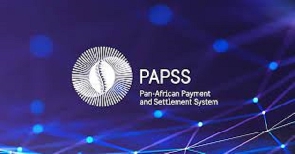 Pan-African Payment and Settlement System (PAPSS)
Pan-African Payment and Settlement System (PAPSS)
The Commercial Bank Settlement Model, recently introduced by the Pan African Payment and Settlement System (PAPSS) will advance the payment of cross-border transactions on the continent – with particular gains witnessed in the areas of cost and time, PAPSS’ Chief Executive Officer, Mike Ogbalu III, has said.
The model, which was formally unveilled on the sidelines of the African Export-Import Bank (Afreximbank) 30th Annual Meetings in Accra, allows commercial banks to open and fund their own settlements, provide foreign exchange (FX) rates to customers, and independently handle their liquidity based on specific banking requirements.
Hitherto, commercial banks relied on central banks to manage their settlement accounts and handle their liquidity needs. With the new model’s entrance, central banks will focus more on providing regulatory oversight.
Speaking during a roadshow on the subject, Ogbalu III said the move forms part of the system’s natural progression, which he said is crucial to meet the increased intra-African trade goals set by the African Continental Free Trade Area (AfCFTA).
“With the introduction of any payment system, there will be a slow start; there will be teething issues and we have had our fair share of them, but we have also seen enough to be certain that it is working – and we will make it work even better,” he said.
This development, the PAPSS CEO added, will ensure that commercial banks can determine how much liquidity they require for various purposes; such as facilitating transactions, managing reserves or meeting regulatory requirements.
PAPSS was formally launched in January 2022 in Accra – which was described by participants as the spiritual home of payments and settlements on the continent – as a robust financial market infrastructure to serve as a secure and efficient platform for handling cross-border payments; guaranteeing swift transactions and affordable costs by eliminating an estimated US$5billion in transaction costs annually.
Addressing concerns over continued use of the US dollar as a settlement currency, Deputy CEO of PAPSS, John Bosco Sebabi, said it is a reflection of the current limitations which exist in currency convertibility on the continent. He however added that the net settlement approach adopted by PAPSS has minimised demand for the American greenback.
“Prior to the introduction of PAPSS, market actors – including central banks, commercial banks, brokers and traders – were saddled with the burden of sourcing foreign currency, especially the US dollar, to settle trades on a gross basis. Now this headache has been minimised,” he explained – adding that continued use of the dollar is transitory, as steps continue being taken to drive efficiency in currency conversion on the continent.
This comes as PAPSS anticipates a rapid uptake over the next decade – expanding from its current stakeholder pool which includes nine central banks, 65 commercial banks and 12 strategic partners, including some stock exchanges.
The Head of Product and Business Development at PAPSS, Monica Oraro – outlining benefits of the Commercial Bank Settlement Model, said in addition to banks being able to set the exchange rate – guided that the central bank and market conditions, the model also allows for payments in local currency or US dollars, as well as the provision of settlement support through an overdraft facility.
She said this is in addition to the settlement speed, which takes on average 120 seconds and is sometimes between seven and 20 seconds, and has a US$25 maximum cost versus US$49 on average for global payment systems.
Head of Payment Systems-Bank of Ghana (BoG), Dr. Settor Amediku, said PAPSS represents the future of settlements on the continent; and despite the prevailing challenges, early adopters are poised to be in the driving-seat as the market matures.
Drawing parallels between PAPSS and introduction of the Ghana Interbank Payment and Settlement Systems Limited (GhIPSS) and mobile money, he said: “Some have expressed scepticism about the success of PAPSS, but it goes without saying that it is here to stay; and just as we have had it in the past when change was required, there have been some foot-dragging – but those who have gotten in early will learn and secure the market”.
So far, GCB Bank – which was the first bank in the country to execute a transaction under PAPSS; United Bank for Africa (UBA); GT Bank; Prudential Bank; Consolidated Bank Ghana (CBG); and UMB Bank are on board the platform.
Others are Stanbic Bank, Omni BSIC Bank, Zenith Bank, Bank of Africa (BOA) and FBN Bank, which are being joined by Access Bank, Ecobank and Stanbic, as PAPSS entered into a memorandum of understanding (MoU) with five prominent African bank groups at the Afreximbank Meetings to support and revolutionise the settlement of cross-border payments through their massive footprints on the continent.